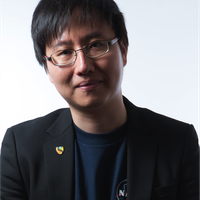Biotechnology & medicine
Will McLean
Hearing loss in humans has always been irreversible. His innovation may change that.

Europe
James Roberts
His incubator, which is inflatable, portable, and powered by a battery, could save the lives of millions of premature babies

China
Yinqing Li
Enabling comprehensive profiling of single neurons which provides important information for potential drug targets

Asia Pacific
Ajay Prakash Kottapalli
Nature-inspired miniaturized sensors that create new standard of care in biomedical flow sensing.

Asia Pacific
Chun-Hao Huang
Merging functional genomics and artificial intelligence for disease detection and treatment.
